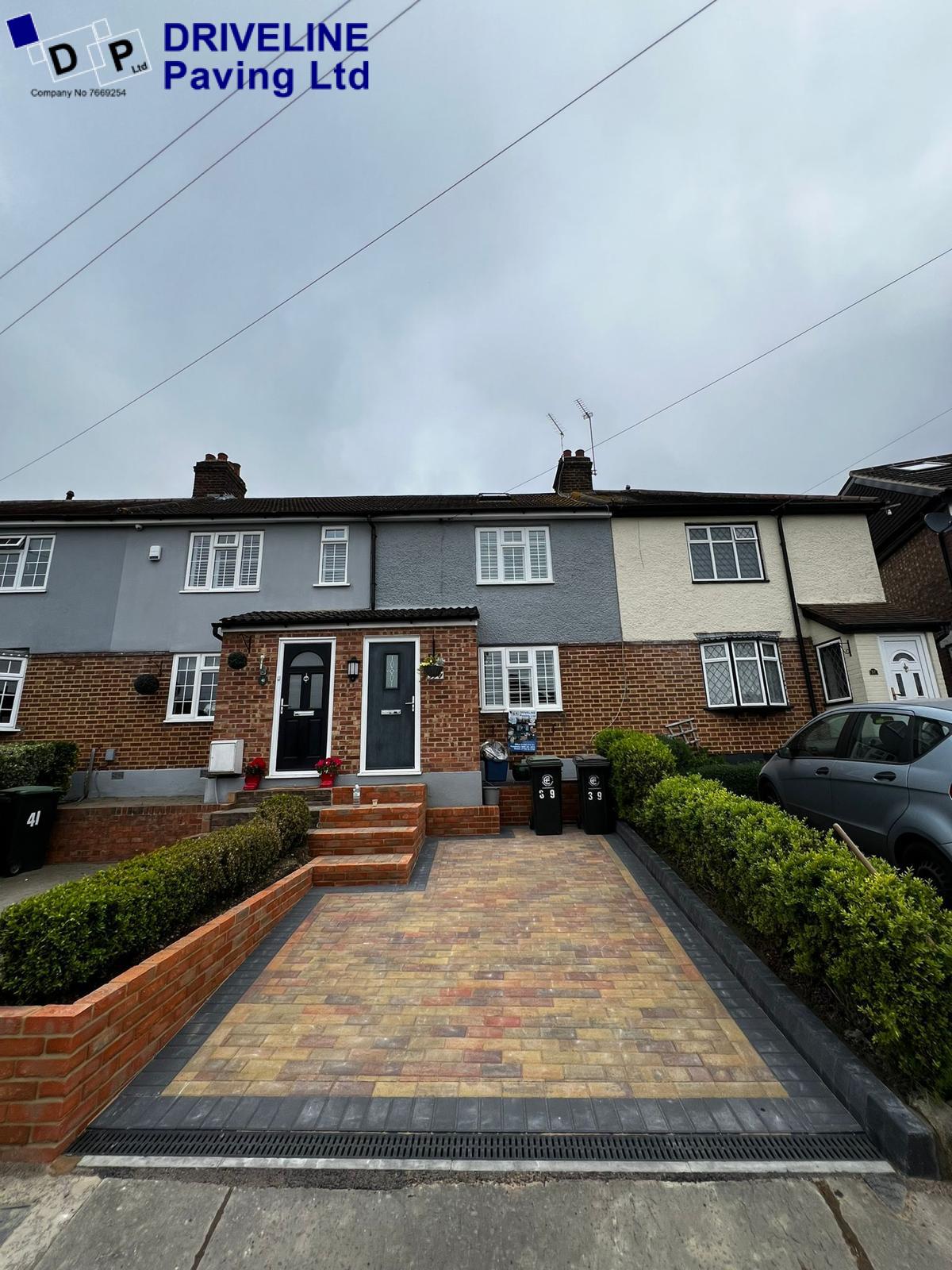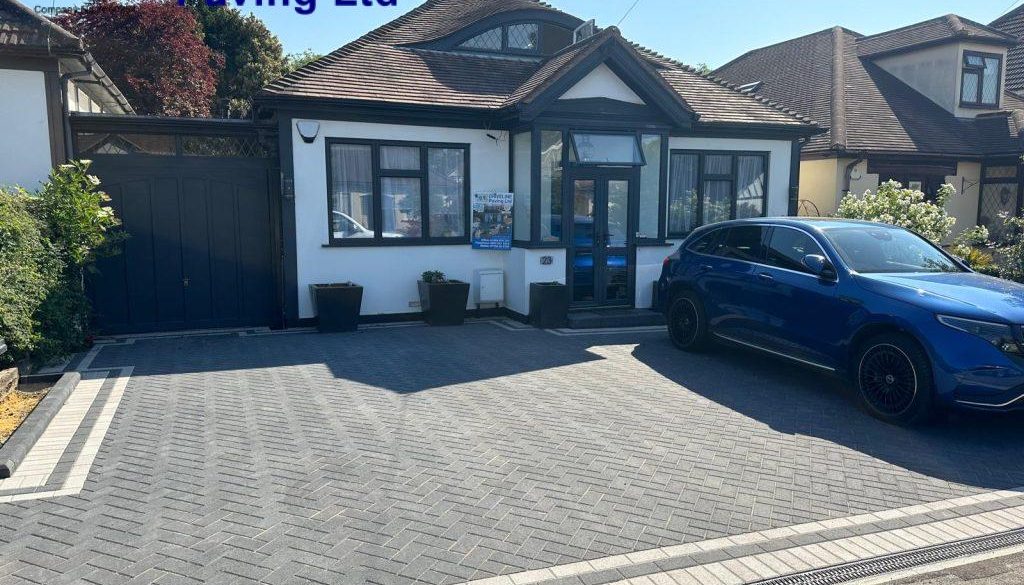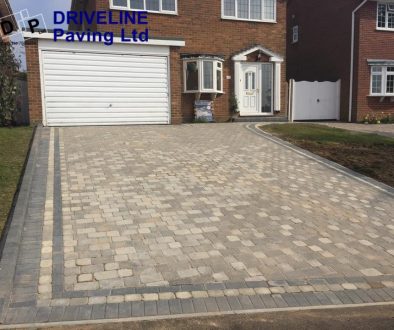The Hidden Science Behind Noise-Reducing Driveways
Noise pollution is one of the most common frustrations for UK homeowners, especially in built-up areas or properties close to busy roads. Constant vehicle noise, rumbling tyres, and vibrations can reduce comfort, disrupt sleep, and even affect long-term health. Whilst many people think of double glazing or fencing as the main solutions, driveway design itself plays an important role. By choosing the right materials and layout, you can cut noise levels significantly. Here’s the science behind noise-reducing driveways—and why they make such a difference.
Why Noise Pollution Matters
Most homeowners are aware of how disruptive outside noise can be. What’s less obvious is the toll it takes on health and wellbeing. Research has shown that long-term exposure to high noise levels is linked to increased stress, difficulty concentrating, and even cardiovascular issues.
Driveways, as the direct contact point between vehicles and the property, are a major factor in how much sound reaches the home. Every time a tyre rolls over a surface, it generates vibrations. Depending on the materials used, these vibrations can either be absorbed and dampened or amplified and carried towards the house.
Reducing driveway noise doesn’t just improve daily comfort—it contributes to a healthier living environment for the whole household.
How Driveways Generate Noise
The sound produced on a driveway is shaped by several factors.
- Material composition – Hard, dense surfaces like untreated concrete reflect sound waves, making noise sharper and more noticeable. More porous materials absorb vibrations and reduce echoes.
- Surface texture – Rough or uneven surfaces cause tyres to rattle and hum, creating additional noise. Smoother, properly compacted surfaces allow quieter movement.
- Drainage and gaps – Water pooling or poorly filled joints increase tyre spray and vibration noise.
- Vehicle weight – Heavy vehicles like vans or delivery lorries intensify surface impact, making sound control even more important.
By understanding these mechanisms, homeowners can see why material choice is so important in cutting unwanted noise.

The Role of Driveway Materials in Sound Absorption
Some materials naturally perform better than others when it comes to reducing sound. The science lies in how well they absorb vibrations and manage contact with tyres.
- Resin-bound driveways – Resin is slightly flexible, which means it absorbs more of the tyre’s impact. Its permeable surface structure also helps disperse sound energy rather than reflecting it back.
- Porous asphalt (tarmac) – Tarmac mixed with porous aggregates has long been used on motorways for its ability to cut tyre noise. On driveways, it reduces surface resonance and dampens vibrations.
- Block paving – Traditional block paving can vary, but when installed with permeable joints and compacted correctly, it can absorb some sound. Thicker, textured blocks also reduce tyre squeal.
- Gravel – Although not suited to all properties, gravel has excellent natural noise-dampening qualities. The loose stones absorb vehicle impact, softening the sound of movement.
Selecting a surface isn’t just about kerb appeal—it directly influences how quiet your home environment can be.
Smart Design Choices That Cut Noise
Noise-reducing driveways aren’t only about the material itself. Design choices make a significant difference too.
Gradient and layout
Driveways designed with a steady, even gradient reduce the amount of braking or acceleration needed, lowering tyre noise. Steeper slopes encourage sudden engine revving, which can amplify sound.
Surface width
Wider driveways give drivers more room to manoeuvre smoothly, avoiding sharp turns that cause tyre squeal and unnecessary vibration.
Edge treatments
Borders made of softer or more porous materials help absorb excess noise. Planting hedges or shrubs along driveway edges also adds a natural sound barrier.
Drainage systems
Standing water increases tyre spray noise. Permeable materials and hidden drainage channels not only manage rainwater but also contribute to a quieter surface.
Together, these design elements create a driveway that actively reduces the sound of daily vehicle use.
Benefits for Homeowners and Communities
A quieter driveway benefits more than just the immediate household.
- Improved wellbeing – Lower noise levels contribute to better sleep, reduced stress, and greater comfort.
- Enhanced property value – A driveway marketed as noise-reducing is attractive to buyers seeking peace and privacy.
- Neighbourhood impact – Less sound escaping into the street benefits surrounding homes, especially in closely built areas.
- Reduced wear and tear – Quieter driveways often go hand-in-hand with smoother surfaces, which protect vehicles from vibration-related damage.
In busy urban or suburban settings, these benefits can make a noticeable difference to quality of life.
The Science in Action: Examples from Everyday Life
To see how this works, consider examples from larger-scale projects. Motorways and A-roads across the UK often use porous asphalt to reduce noise for nearby communities. The same principles apply on a domestic scale—if porous tarmac can quieten the M25, it can certainly make your driveway more peaceful.
Similarly, airports and logistics centres use resin-bound and permeable surfaces to dampen the impact of constant heavy traffic. Homeowners can benefit from the same proven technology to reduce the sound of everyday comings and goings.
These real-world applications highlight just how powerful the right driveway surface can be.
Quieter Homes Start at the Driveway
Noise-reducing driveways combine material science and smart design to create a calmer living environment. Whether you live near a main road, face frequent delivery traffic, or simply want a more peaceful home, upgrading your driveway is an effective solution.
Resin, porous tarmac, block paving, and even gravel all provide ways to dampen vibrations and cut sound levels. Combined with good design practices like smooth gradients and effective drainage, the results can transform your property.
Looking to reduce noise around your home? Contact Driveline Paving Ltd today for expert advice and professional driveway installation. A quieter, more comfortable property is just one project away.


